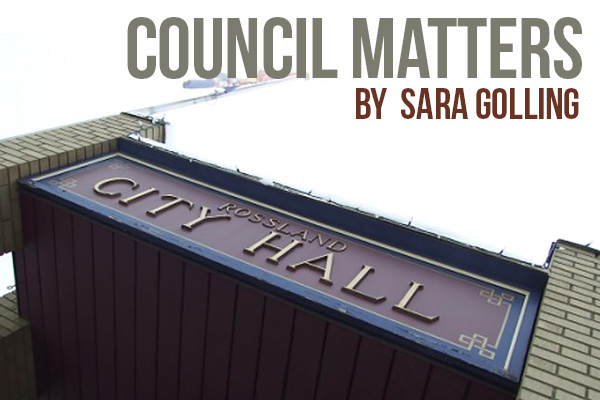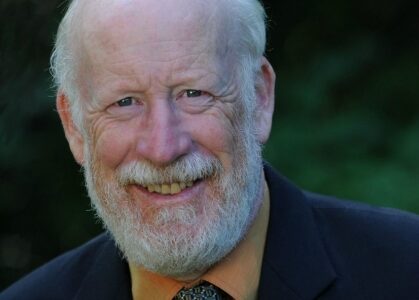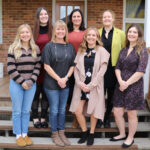RCAC Kiosk Kafuffle; Stingrays Sinking?
Rossland City Council Meeting on May 11, 2015
Present: Mayor Kathy Moore and Councillors Andrew Zwicker, John Greene, Marten Kruysse, Lloyd McLellan, and Andy Morel (absent: Aaron Cosbey)
Staff: Interim CAO Mike Maturo, Acting Chief Financial Officer Lois Hunter, and Deputy Corporate Officer Cynthia Añonuevo.
Public Input Period: Stingrays in a financial bind. Sean Miller, president of Stingrays Swim Club, told Council of the club’s ongoing struggle to survive the Trail Recreation Program (TRP) charges, imposed by Trail when Rossland withdrew from funding the Regional recreation facilities. Miller explained that the additional financial burden has put them on the brink of bankruptcy, from covering the fees for Rossland swimmers. The number of swimmers has fallen from 30 to 5, possibly because of the high fees. When Moore asked why the Stingrays need financial help when other local recreational programs don’t, Miller explained that the fees charged for the Stingrays program don’t cover the TRP –it’s almost a 100% surcharge on top of the regular fees and expenses; and the other programs don’t have that additional charge. Miller was speaking in support of the Stingrays’ request for funding from the City to cover fees the Stingrays have already paid on behalf of swimmers to enable them to participate in the program.
Delegations:
Stephen Hill spoke to Council about an undefined proposal for adding more seniors’ housing to the limited amount now available in Rossland. The proposal seemed to hinge on the City supplying the land, and “a group” of unspecified people including lawyers, accountants and builders arranging to place modular dwellings, manufactured in Kelowna, on the land. Hill stated that Rossland’s seniors are leaving the area because of the lack of suitable housing. Zwicker asked how much land they would need; Hill responded that they could build 14 to 18 units on an acre. Moore said she thought the proposal was “a bit loosey-goosey” because of the lack of specificity; Hill responded that he didn’t want to put together a specific proposal without first knowing what the City is interested in for seniors’ housing. Hill did not explain the financial side of his concept except by mentioning a possible 50-year mortgage to pay the City for the land, and a range of costs to build different types of accommodation. Moore thanked Hill for bringing his thoughts to Council.
Decision on RCAC kiosk:
The back of the new Rossland Council for Arts & Culture kiosk does not match the design approved by the previous Council; it lacks the colours in the original design, the musical note pattern does not match the original design, and a wavy line intended to represent Rossland’s mountain backdrop does not match the design and the result is (in your reporter’s opinion) less appealing as a composition.
The recommendation from staff was to send the kiosk back to RCAC to alter the design to match the City’s intention. McLellan thought the City should insist on the design being what Council approved. Greene likes it as is, and pointed out that it’s the back of the sign, not the front; he said it fits in well enough. Moore pointed out that the “back” of the sign faces the Ferraro’s parking lot and is very visible. Kruysse asked whether the approved design was sent to XL Welding; Moore was not sure. Kruysse suggested that matching the approved design may not be worth the extra money. Zwicker said that branding doesn’t have to be identically replicated everywhere — just related; in fact identical isn’t as good, and that meanwhile Council needs to work on communication lines. McLellan said he thinks the $1200 charge cited for making it right is exorbitant. The motion to send the kiosk back to RCAC to match the original design was DEFEATED; Moore, Zwicker, Greene, and Kruysse voted against it.
A motion to leave the sign as it is was also DEFEATED, with only Greene voting in favour.
A motion to ask RCAC to work with Staff on having the sign more closely match the approved design and City branding CARRIED.
A motion to approve the Youth Action Network request to be able to apply for grants of up to $5000 without specific Council approval CARRIED unanimously.
A motion to authorize staff to apply to the Community Energy Association to participate in a Strategic Community and Energy Plan for the City of Rossland CARRIED. Kruysse pointed out that recent global measurements found that atmospheric carbon dioxide has reached or exceeded 400 parts per million (a level not previously reached since before the predecessors of human beings walked the earth).
Council considered a recommendation from ICAO Maturo that Council proceed without further assistance to the Stingrays Swim Club in order to remain consistent with the current 2015 budget. Moore reported that she had a conversation with Trail Mayor Mike Martin, and they talked about how to help; Rossland has only $5200 left in the fund, and Moore suggested that the City give it all to the Stingrays ” as a good-will gesture” and hope that Trail would also make a good-will gesture.
A motion that the City give $5000 to the Stingrays, and further that Rossland City Council appoint a committee to work with the Stingrays to present their case to Trail Council CARRIED, with only Zwicker opposed. Kruysse commented, “to me, the question is, how do we provide better access to recreation facilities for our kids?” He also spoke about the value of the Stingrays to participants, and of improving our relationship with Trail. Moore noted that Council made a mistake is reducing the budget amount for assistance on the TRP, and McLellan agreed.
A motion to approve the City’s Audited 2014 Financial Statements CARRIED unanimously.
Council considered an Invoice for the Sustainability Commission. A motion to defer the decision until Council has met with SC personnel to clarify their budget and the invoice CARRIED.
Council considered an invoice for legal services from Western Industrial Relations: Hunter placed this invoice before Council for approval because the policy isn’t clear on the amount to be approved by the mayor without a Council motion. The motion to approve it CARRIED unanimously.
Bylaws:
Council held a special meeting on Friday, May 8, at 9:00 am, to give first, second, and third readings to the following set of bylaws, to enable them to be approved before the legal deadline of May 13. Motions to adopt all of the following bylaws CARRIED unanimously:
#2583: Rossland’s 2015 – 2019 Financial Plan;
#2584: Parcel Tax Bylaw for Sewer Service Bylaw;
# 2585: Parcel Tax Bylaw for Water Service Bylaw;
#2586: Municipal Tax Rate Bylaw;
#2587: Red Mountain Specified Area Service Tax Rate Bylaw;
#2588: Ophir Reservoir Local Area Service Parcel Tax Rate;
#2589: Heritage Commission Bylaw.
#2590: Annual Revenue Anticipation Bylaw (required to enable the City to borrow funding if needed for major projects).
A motion to give first, second and third reading to Bylaw #2591: Washington Street Project Borrowing Bylaw CARRIED. (allows for borrowing for the project, up to a maximum of $6 million.) Council discussed the issue of publicly allowing a certain amount of money for a project, and how that might affect tenders submitted. Hunter said that the amount is designed to ensure that there will be more than adequate funding available; it’s a generous estimate and we hope not to spend that much, but it’s wise to allow for unexpected overruns. Maturo mentioned some expenses in the Columbia Street project that were not anticipated and had to be covered.
The Heritage Commission is asking the City for notification when any permit is applied for to make changes to any buildings on the Heritage register. With input from Maturo, Council decided that would not be too demanding for staff.
Public Works Manager Darrin Albo had sent Council a note saying that he thinks City staff can accommodate the requests for Golden City Days within the new budget.
Council discussed the success of Rossland’s Youth Week; Zwicker and Moore both said that the Red Talks were “amazing!” and said that everyone should go hear them next year.
Moore supplied Council, and anyone else interested enough to look in the Council agenda package for this meeting, with her written reports from Regional District of Kootenay Boundary (RDKB) board meetings, and from the Association of Kootenay Boundary Local Governments convention in Nakusp. A couple of highlights, or lowlights, from the RDKB: sewerage flow measurements were provided for the first time, and Rossland’s contribution to the total was 29%, which is higher than Rossland has anticipated. That means we will pay more than anticipated for our sewer services, unless we can reduce the amount of “liquid waste” we flush down the hill. What goes into the sewer? Toilet flushing, showers, laundry and dishwashing water … and any roof and perimeter drains that still flow into the sanitary sewer rather than the storm drain system. An even larger problem may be the amount of water that flows into the sanitary sewer mains from water running down the streets. Sewer mains must “breathe” to prevent potential deadly explosions of sewer gases, and the required perforations in the covers can let a lot of water into the sewers when it rains. (Meanwhile, we can follow that old piece of advice: if it’s yellow, let it mellow; if it’s brown, flush it down … )
A motion to release declassified in camera minutes CARRIED (your reporter read them all, and yawned mightily).
Council adjourned the meeting, and your reporter strolled home past several lilac bushes bursting into bloom, and marvelled at the lush, intensely green grass and foliage. Is it greener this year?

























